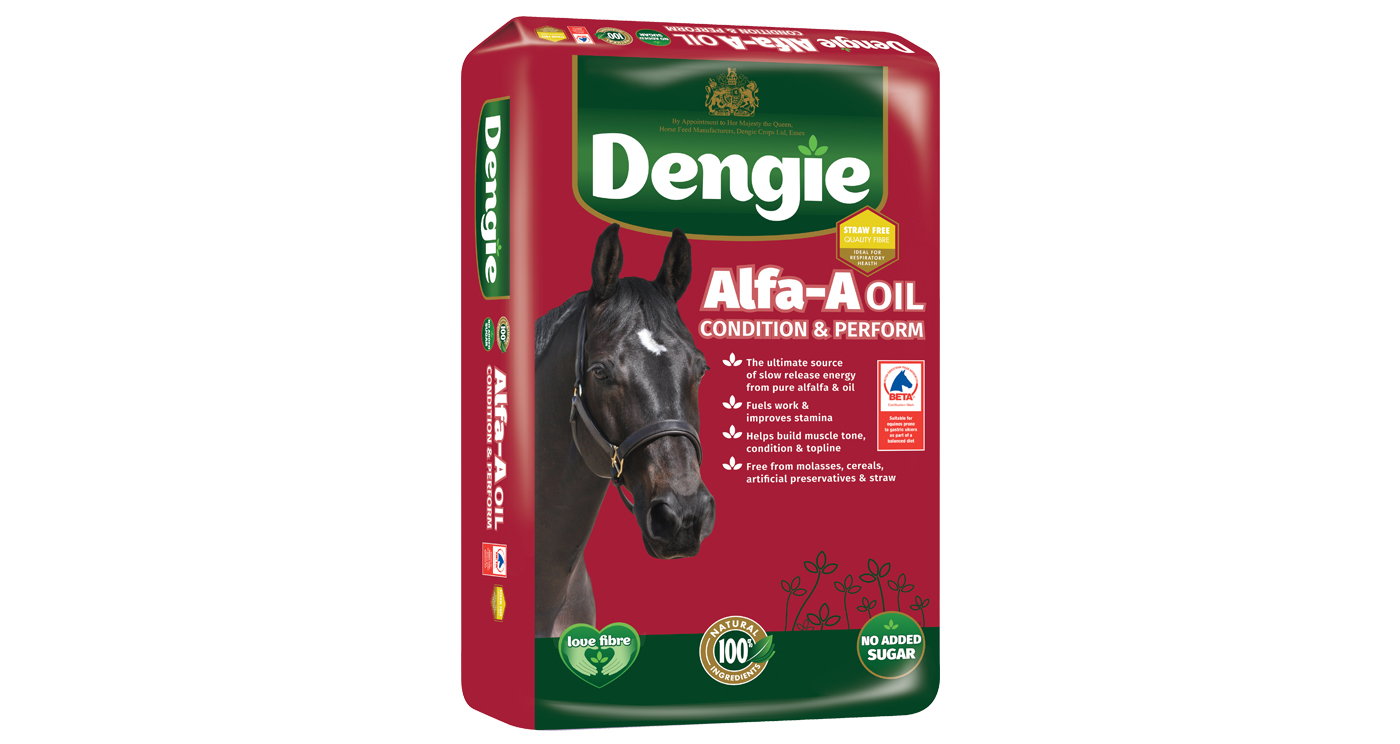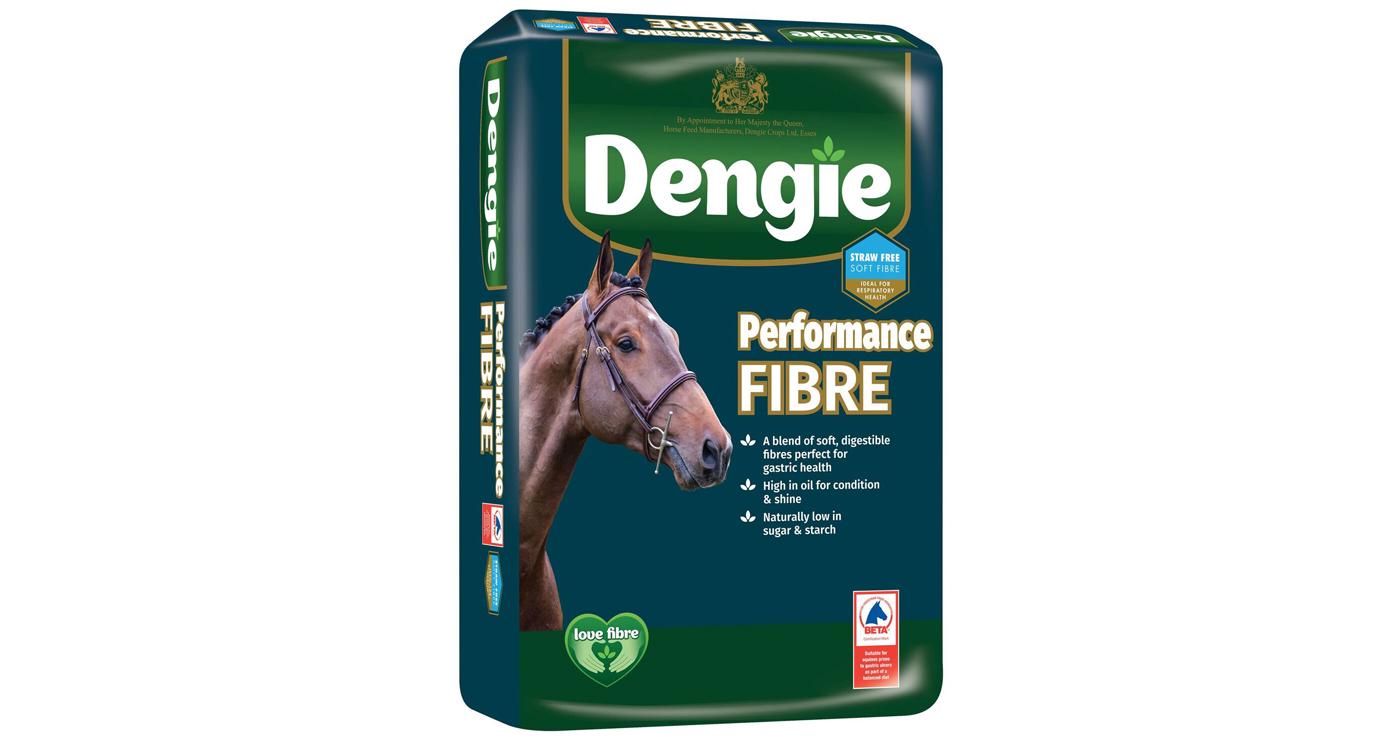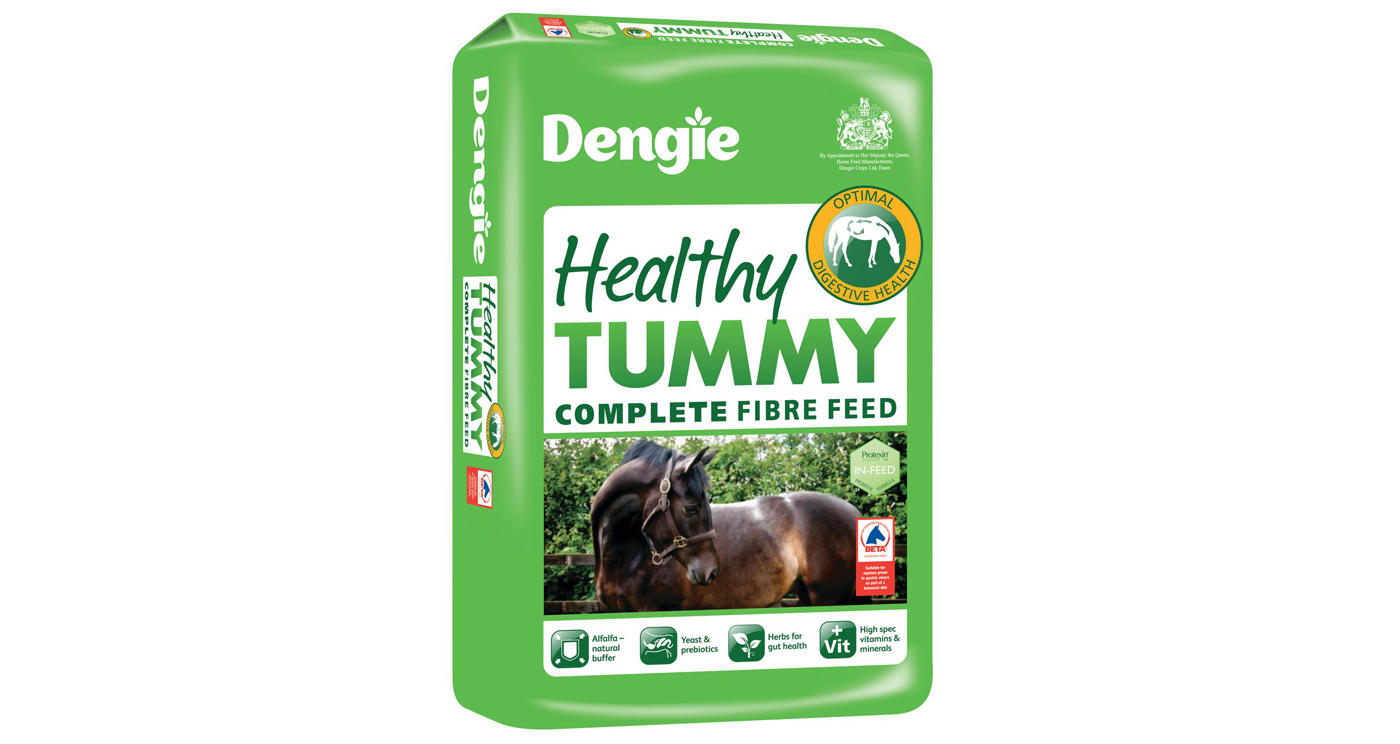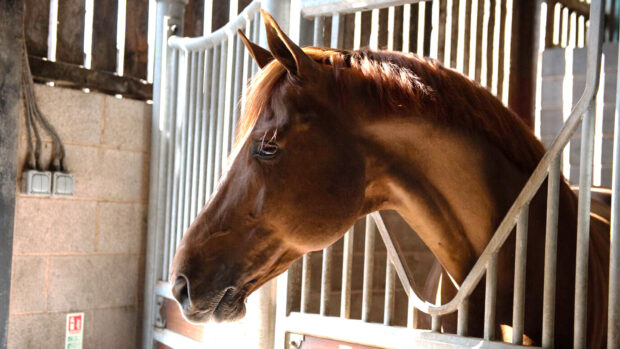Promotional Feature with Dengie
As we’ve learnt more about the structure of the horse’s stomach and the factors that result in ulceration, it has become clear that there are two types of ulcers. The horse’s stomach consists of two types of tissue; the squamous and the glandular and it is this distinction that is used to differentiate between the two disease types: equine squamous gastric disease (ESGD) and equine glandular gastric disease (EGGD).

“Dengie Healthy Tummy fuels my horses’ performance while helping their digestive systems stay in perfect condition,” says Tanya Buckingham-Lloyd, CCI4* event rider.
The advice for feeding horses with ESGD, which is the most common form of ulcers, is all about more fibre and less starch. Whilst this is still recommended for EGGD, it is also as important to reduce the horse’s exposure to stress – research has even shown that giving two days off work a week can be really helpful in reducing risk.
So what can I do to maximise gut health?
All horses should have at least 1.5% of their bodyweight in forage a day. The type of forage that is most suitable will depend on their body condition; good doers and those that are overweight can be fed coarse, fibrous hay or straw whereas poor doers, older horses and those with gastric health issues are better suited to softer, leafier hays that are more digestible and therefore likely to provide more energy and nutrients. It is important to note that straw has only been shown to be a risk factor for ulcers when fed as the sole source of forage. As part of a mix of forages it is a useful way to provide fibre without too many calories.
Traditionally cereals have been fed to horses to provide energy, but there are lots of alternatives now that are more sympathetic to the digestive system. High quality fibres such as alfalfa and sugar beet can make a significant contribution to a horse’s energy requirements and if your horse really does need more energy then oils are a preferable option to cereals.
If you want to do remove cereals from your horse’s ration, why not consider one of the following Dengie feeds suitable for horses and ponies prone to EGUS?
Dengie Healthy Tummy is free from molasses and cereals. It contains FOS prebiotics and yeast to promote gut health and a unique blend of herbs formulated specifically for this feed. It contains a medium level of energy and so would be ideal for horses in moderate work.
For horses in hard work or that need to gain weight, Dengie Alfa-A Oil is also suitable for horses and ponies prone to EGUS and is a high calorie feed comparable to a conditioning or competition mix with 10 times less starch than cereal-based feeds.
For fussy feeders, Dengie Performance Fibre combines grass with alfalfa and a high oil coating. The addition of spearmint oil creates a very palatable feed – ideal for tempting those with limited appetites.
- Ultimate pure alfalfa, high-fibre feed for fuelling work and promoting condition
- Provides 12.5MJ/kg of digestible energy from fibre and oil, which is comparable to a conditioning mix/cube
- Exceptionally low in starch at just 2%
- Contains a naturally occurring sugar level of just 4.5%
- Free from molasses, straw, cereals and preservatives

- A tasty blend of pure alfalfa and grass to tempt fit, picky performance horses
- Highly palatable with a light molasses coating & spearmint oil
- Soft and easy to chew
- High in fibre, naturally low in starch.
- Free from cereals and straw

- Nutritionally balanced pure alfalfa, high-fibre feed
- Includes a high-specification of B vitamins, plus additional magnesium and calcium
- Contains ADM Protexin In-Feed Formula
- Free from molasses, straw, cereals and preservatives

All of these products carry the BETA Approval Mark as being independently approved as suitable for equines prone to gastric ulcers as part of a balanced diet.
For further help and advice from our qualified nutritionists click here and complete the form for a free, personalised feeding plan. Alternatively call the Dengie Feedline






